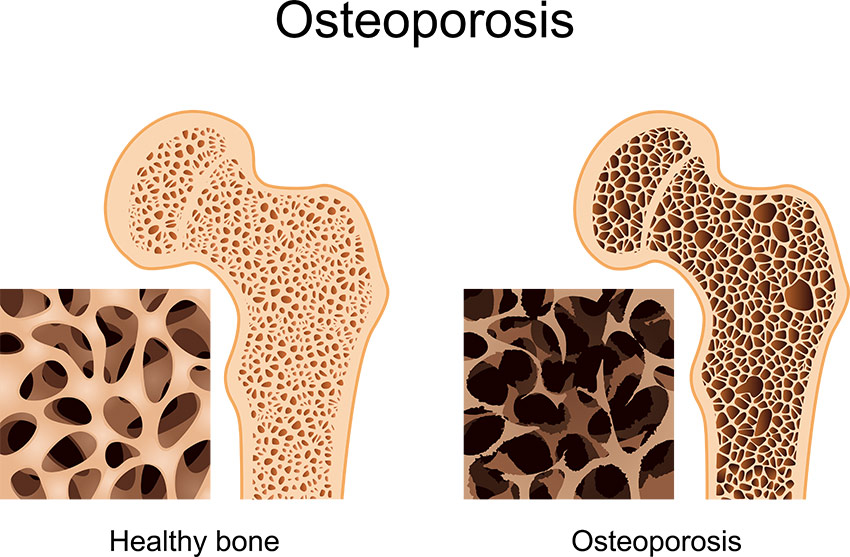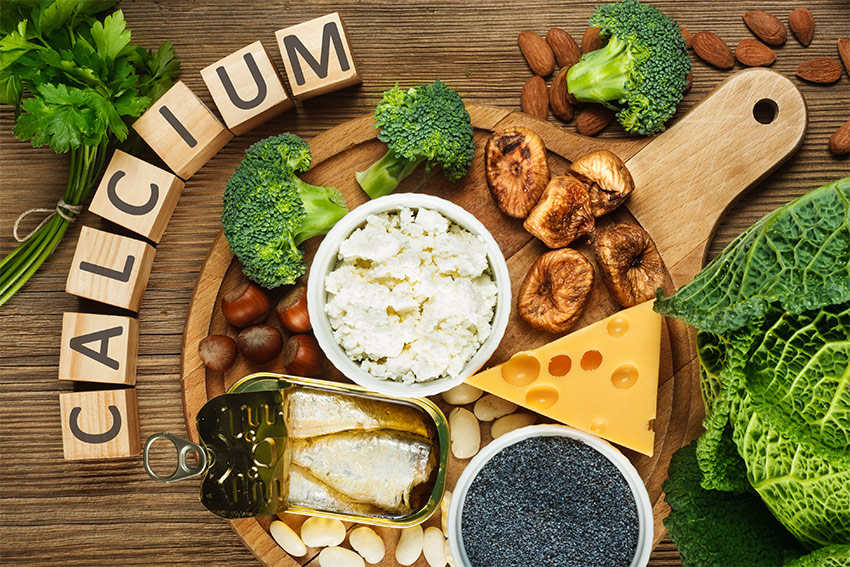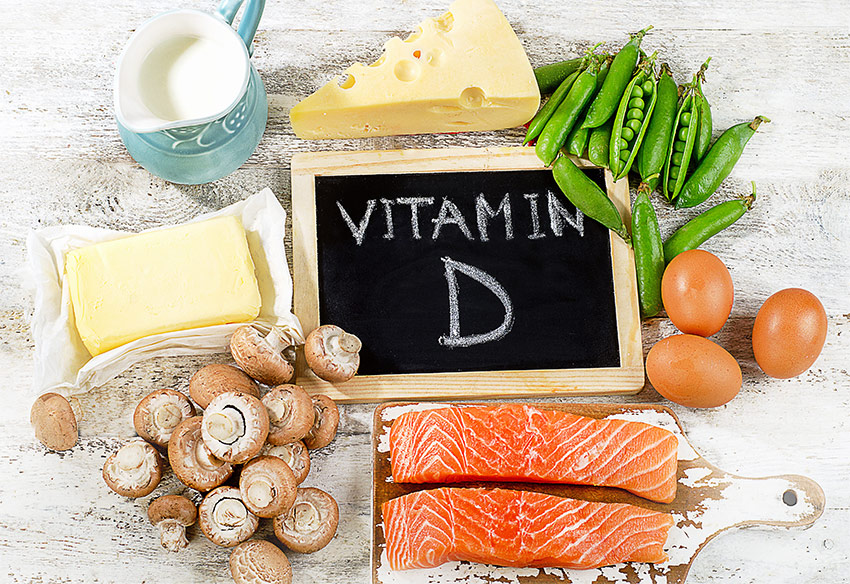How Vitamin D and Calcium Work Together For Strong Bones
What you eat has a direct impact on your overall health, and more specifically, the health of your bones. Two nutrients in particular – Calcium and Vitamin D – work together to develop and maintain strong and healthy bones. It is therefore important that you get enough of both calcium and vitamin D if you want to achieve optimal bone health.
Calcium’s Role in the Body

Calcium is a mineral that is needed for various functions in the body, including blood clotting and muscle contraction. Almost all of the calcium in your body is found in your bones and teeth. But after age 20-25, bone density declines, so calcium is essential in slowing down the loss of bone density. Your body is unable to produce new calcium, so it’s important that you consume calcium in your diet because when calcium is in short supply, your body will take it from your bones to function. Additionally, inadequate calcium intake significantly contributes to the development of osteoporosis.
Vitamin D’s Role in the Body
Vitamin D, also known as the “sunshine vitamin” is another important player when it comes to bone health. The general physiological functions of vitamin D include promoting strong bones, properly functioning muscles, and encouraging an effective immune system. Vitamin D is essential for healthy bones because your body requires it to absorb calcium and acts to prevent hypocalcemia (low blood calcium). Further, it is needed for bone growth and bone remodeling.
Calcium Needs Vitamin D
Even if you’re consuming enough calcium, it may not be enough to protect your bone health since calcium and vitamin D work together to protect your bones:
- Calcium helps build and maintain bones
- Vitamin D helps your body absorb calcium
If your body isn’t absorbing enough calcium, then it will take the calcium it needs to function from your skeleton, which can lead to bone loss, lower bone density, and an increased risk of fracture as you age.
Getting Enough Calcium
Although standard dietary doses vary by age, sex and hormone status, government regulated health organizations such as NIH (National Institutes of Health) do provide some recommended guidelines. The recommended daily intake (RDI) of calcium for adults under the age of 50 is 1,000 mg, while those over the age of 51 require 1,200 mg because of acceleration of bone loss with aging. While calcium supplements are readily available, food is your best source of calcium. Therefore, try to get the recommended daily intake of calcium through your diet, and supplement only if you have a shortfall.

Food sources with high calcium content include:
- Food sources with high calcium content include:
- Fortified cereal
- Canned sardines in oil with edible bones
- Cheddar cheese
- Non-fat or low-fat milk
- Plain, low-fat, yogurt
- Soybeans
- Tofu
- Canned salmon in oil with edible bones
- Turnip greens, collards, kale, mustard greens
- Broccoli, cabbage, bok choy
- Black-eyed peas, black beans, dried beans
Getting Enough Vitamin D
The recommended daily intake of vitamin D for individuals up to the age of 70 is 600 International Units (IU); after age 70, it is recommended that individuals increase their intake to 800 IU.
There are three ways you can get vitamin D:
- Sun exposure through the skin
- Diet
- Supplements
Sunlight exposure is essential in order to obtain the RDI for vitamin D. Your skin makes vitamin D from the ultraviolet light in sunlight (UVB rays). Your body then stores the vitamin and uses it when it’s needed. Various factors affect the amount of vitamin D your skin is able to make, including the time of day, season, latitude, as well as your skin pigmentation. In some individuals, vitamin D production may significantly decrease or be absent during the winter months; in these cases, greater intake of food sources of vitamin D, or supplementation with vitamin D, is necessary to maintain healthy bones.

Vitamin D is available in a number of food items, including:
- Egg yolks
- Wild caught fatty-fish (salmon, tuna, mackerel)
- Fish liver oils
- Beef liver
- Fortified milk, orange juice, and soy milk
- Fortified cereal
So if you’re looking to build and maintain strong bones, you’ll want to ensure that your calcium and vitamin D intake levels are sufficient, as these two elements are dependent on each other for proper functioning in the body.
You may also like: